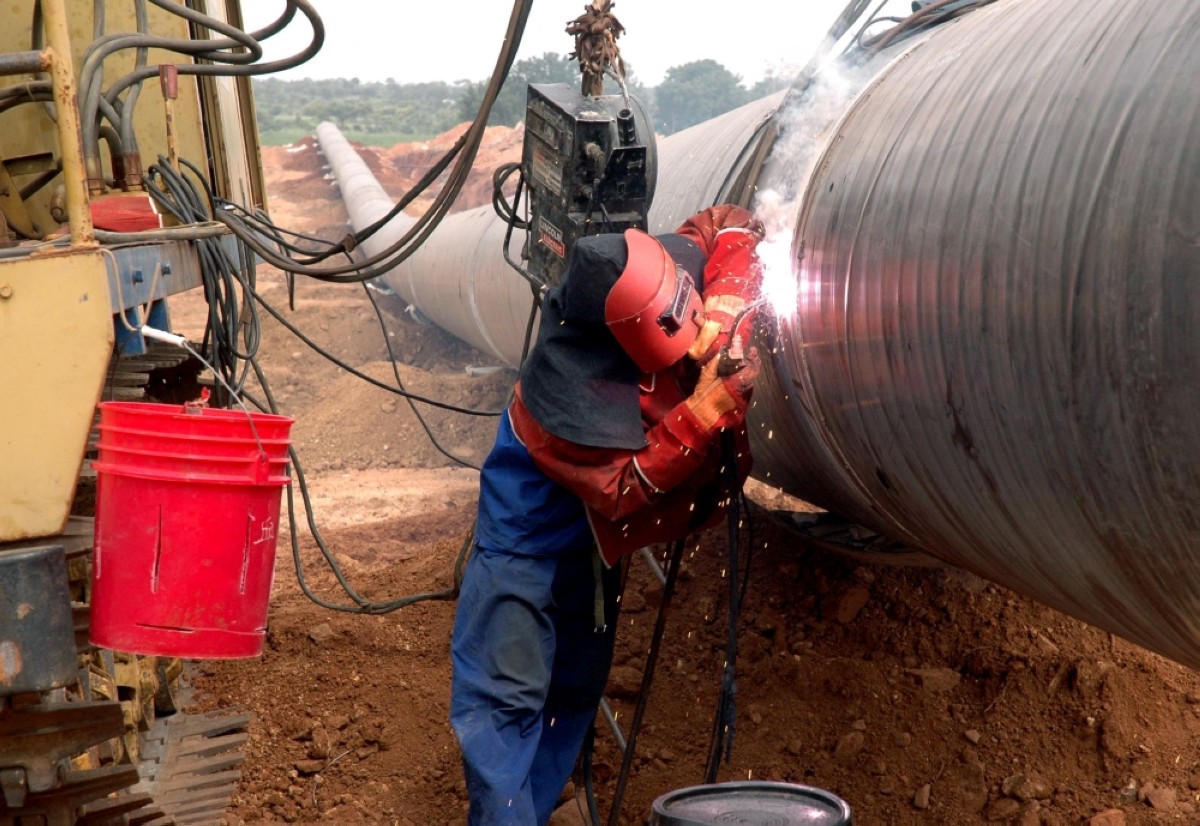COP28 could push India’s energy transition ambition
DUBAI: The COP28 climate summit, which starts in Dubai on Thursday, is an opportunity for India to boost its efforts in transitioning to renewable energy, industry experts say.
 Youth delegates make a statement at the pre-COP28 event in Abu Dhabi.
Youth delegates make a statement at the pre-COP28 event in Abu Dhabi.
The country’s limitations on moving away from dependence on coal will also come to the fore at the summit, given its rapidly growing energy demands.
“India’s priorities for COP28 will revolve around building on the positive momentum gained at the recently held G20 [summit in New Delhi], including focusing on tripling renewable energy capacity by 2030, developments in green hydrogen and the need of low-cost finance for energy transition,” says Gautam Mohanka, chief executive at Gautam Solar in New Delhi.
“Additionally, India will focus on accountability and more ambitious climate mitigation plans from the wealthy, developed nations.” Industry leaders are confident about what India might be able to achieve at COP28. “As we enter COP28, India has the opportunity to showcase not only the progress made but also our unwavering dedication to a green and resilient future,” says green energy company Avaada Group’s chairman, Vineet Mittal, who is part of the delegation.
India has been rapidly increasing its green energy capacity – especially solar – as it recognizes this as not only a way to cut emissions, but also to boost its energy security and reduce its import bill from fossil fuels. The country is aiming for 500 gigawatts of renewable energy capacity by 2030. As of July, India had an installed capacity of 176.49 gigawatts, according to official data.
“Realizing the 2030 renewable energy target will be a milestone not to be missed if India is to stay on track for the 2070 net-zero goal,” says Anup Garg, founder and director of World of Circular Economy, a company offering sustainability solutions. India’s Prime Minister Narendra Modi at COP26 in 2021 pledged India would cut its emissions to net zero by 2070, and renewables would make up half of the country’s energy mix by 2030. The US and EU have committed to becoming carbon neutral by 2050, while China is targeting 2060 for the goal.
India is the fourth-largest emitter of carbon emissions after China, the US and the EU. The COP conference this year is seen as particularly crucial as the planet appears to be falling short in its efforts to tackle climate change. The first full global stocktake of the world’s climate targets will be delivered at COP28. Efforts by countries so far are insufficient to limit the world’s temperature increase to 1.5°C above pre-industrial levels, an initial report on the summit found.
India, as the fifth-largest economy and with the world’s largest population of more than 1.4 billion people, is considered vital when it comes to global climate negotiations. “India’s energy demand continues to rise due to the growth in the country’s population and economy in the years ahead,” says Garg. However, because of these demands and despite pressure from developed nations, India has been resistant to setting a deadline to phase out fossil fuels such as coal. The country relies on the highly polluting fuel to produce about 70 per cent of its electricity. Although “India remains one of the fastest growing markets for renewable energy, it still remains largely dependent on coal to meet its growing energy needs”, said Mohanka.
“While India still faces a relatively big challenge with coal dependency within its energy sector, we are quite optimistic about the efforts being made to reduce it,” says Sandiip Bhammer, founder and co-managing partner at Green Frontier Capital, a climate change-focused venture capital fund. — Agencies
“The government is taking bold steps to phase out old and inefficient coal plants, promote cleaner coal technologies, and invest in carbon capture and storage research.” The aim is “to balance energy security with environmental sustainability”, he adds. “It’s safe to say that India is committed to a sustainable, low-carbon future, prioritizing renewable energy and addressing challenges to achieve this goal.”
For India to be able to lower its reliance on coal, more investment needs to be pumped into renewables and related infrastructure, analysts say. “India has made very impressive strides in shifting to renewable energy sources, particularly in solar and wind power,” said Bhammer.
“Government policies and incentives have attracted substantial investments, positioning India as a rapidly growing clean energy market globally. Nonetheless, challenges like grid integration, energy storage and intermittency issues persist, indicating the need for ongoing efforts to meet targets and strengthen the reliability of energy infrastructure.”
This will require significant investment. “The future energy transformation with complete phase out of fossils requires substantial money, so climate finance is the most important challenge,” said Manish Dabkara, chairman and managing director of EKI Energy Services, a carbon-credit developer and supplier. A key area of focus for India and the success of COP28 partially falls on negotiations around financing to developing countries, experts say.
“Developed countries need to do much more in finance, technology and capacity building for developing countries,” says Pallavi Das, program lead at Council on Energy, Environment and Water, a climate think tank. “Without a clear definition and developed countries not meeting their older targets, the delivery of climate finance is a priority for developing India.”
In 2009, wealthier nations pledged to provide $100 billion per year by 2020 to poorer countries to assist with climate adaptation and mitigation – but they missed this target. “Negotiators will work this year on developing a post-2025 finance goal, but continued disagreement between developing and developed nations will put the ability and willingness of developing nations to scale up climate mitigation efforts at risk,” a recent report by S&P said.
At COP28, India plans to push developed countries to become carbon negative by 2050, rather than carbon neutral, Reuters reported last month, citing government officials. This would give emerging market economies more time to use fossil fuels to meet their development needs. – Agencies.











